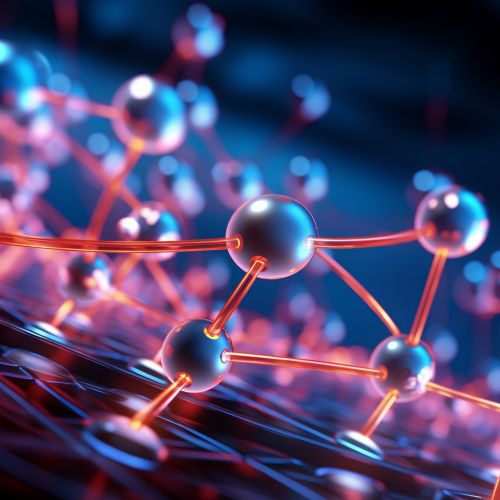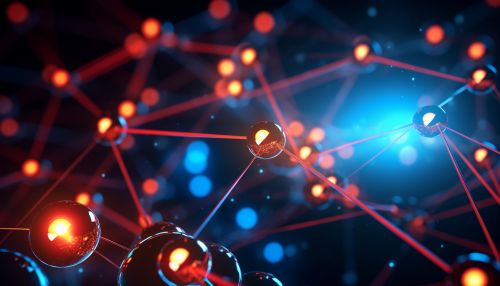Quantum Control of Molecular Reactions
Introduction
Quantum control of molecular reactions is a field of study within quantum chemistry and quantum physics that explores the manipulation of molecular and atomic processes using quantum mechanical principles. This discipline has significant implications in areas such as chemical physics, quantum computing, and nanotechnology.


Quantum Control
Quantum control is a theoretical and experimental field that seeks to manipulate the behavior of quantum systems. This is achieved by designing and implementing specific control fields, often in the form of laser pulses. The goal is to drive a quantum system from an initial state to a desired final state with high precision.
Quantum Control of Molecular Reactions
Quantum control of molecular reactions involves the use of quantum control techniques to manipulate molecular processes. This includes processes such as chemical reactions, photochemical reactions, and spectroscopic measurements.
Theoretical Foundations
The theoretical foundations of quantum control of molecular reactions are rooted in the principles of quantum mechanics. Key concepts include the wave function, Schrodinger equation, and quantum superposition. The manipulation of these elements allows for the control of molecular reactions.
Experimental Techniques
Experimental techniques in quantum control of molecular reactions often involve the use of ultrafast laser pulses. These pulses can be shaped and timed to control the dynamics of molecular reactions. Techniques such as pulse shaping and quantum interference are commonly used.
Applications
Quantum control of molecular reactions has a wide range of applications. These include the development of new materials, the design of quantum computers, and the advancement of medical treatments.
Materials Science
In materials science, quantum control techniques can be used to manipulate the properties of materials at the atomic and molecular level. This can lead to the development of new materials with unique properties.
Quantum Computing
Quantum control techniques are also crucial in the field of quantum computing. They allow for the manipulation of quantum bits, or qubits, which are the fundamental units of information in a quantum computer.
Medicine
In medicine, quantum control of molecular reactions can be used to develop new treatments. For example, it can be used to manipulate the behavior of molecules in the body, potentially leading to new ways to treat diseases.
Challenges and Future Directions
Despite the significant advancements in quantum control of molecular reactions, there are still many challenges to overcome. These include the need for more precise control techniques, the development of more efficient algorithms for control design, and the need for a deeper understanding of quantum phenomena.
The future of quantum control of molecular reactions is promising, with ongoing research in various fields. The continued development of this discipline is expected to lead to significant advancements in science and technology.
